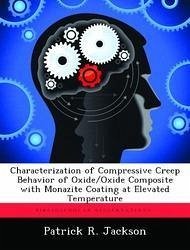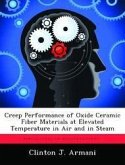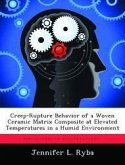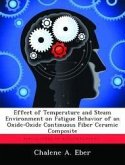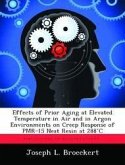Ceramic-matrix composites (CMCs), capable of maintaining excellent strength and fracture toughness at high temperatures are prime candidate materials for aerospace turbine engine applications. In these applications, CMCs will be subjected to mechanical loading in complex environments. Before ceramic matrix composites can be used in high-temperature aerospace engine applications, their structural integrity and long-term environmental durability must be assured. This research investigated compressive stress-strain and compressive creep behavior of the N610/M/A at 900 and 1100 -C. The composite consists of a porous alumina matrix reinforced with NextelTM610 fibers coated with monazite in a symmetric cross-ply (0-/90-/0-/90-)s orientation. The addition of monazite coating resulted in loss of compressive strength at both 900 and 1100 -C. Compressive creep behavior was examined at 900 and 1100-C for creep stresses ranging from 50 to 95 MPa. At 900 -C both monazite containing and control specimens produced creep strains d 0.05%. Conversely, at 1100 -C creep strains approaced 9%. Creep strain rates were on the order of 10-7 s-1. Creep run-out, defined as 100 h at creep stress, was achieved in all tests. Composite microstructure, as well as damage and failure mechanisms were investigated. Furthermore, effects of variation in microstructure on mechanical response were examined. While differences in processing and consequently the composite microstructure did not have a significant effect on tensile response of the CMC, effects on the compressive properties were dramatic.
Hinweis: Dieser Artikel kann nur an eine deutsche Lieferadresse ausgeliefert werden.
Hinweis: Dieser Artikel kann nur an eine deutsche Lieferadresse ausgeliefert werden.

